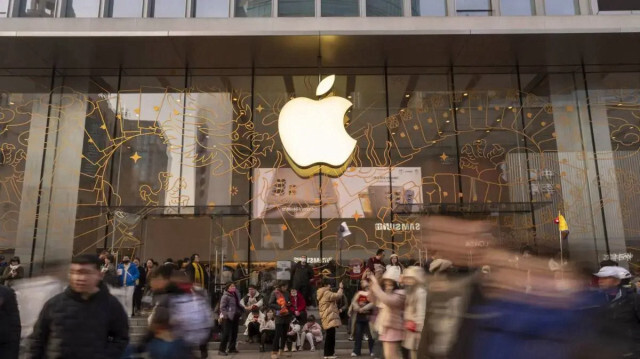Apple drops from top 5 smartphone vendors list in China: Report | News

US-based global tech firm Apple dropped from top 5 list of smartphone vendors in China in the second quarter of this year, according to a report by Canalys.
The American tech company ranked sixth on the list with a market share of 14% in April-June period of this year, down from 16% in the same period of last year, said Canalys, a Singapore-based global technology market analyst firm.
Mainland China’s smartphone market saw a 10% year-on-year growth in the second quarter with shipments exceeding 70 million units, said the report released Thursday.
“It is the first quarter in history that domestic vendors dominate all the top five positions,” Canalys Research Analyst Lucas Zhong said in the report. “Chinese vendors’ strategies for high-end products and their deep collaboration with local supply chains are starting to pay off in hardware and software features.”
Chinese multinational technology company vivo reclaimed the number one spot by shipping 13.1 million units, recording a 15% increase over the previous year, and capturing a 19% market share, it said.
OPPO held onto second place, shipping 11.3 million units, and HONOR came in third with shipments of 10.7 million units and marking a 4% year-on-year increase.
Huawei took fourth place with shipments of 10.6 million units, while Xiaomi saw a 17% annual increase and re-entered the top five list by shipping 10 million units in the second quarter.
“The Chinese market is finally aligning with global recovery speeds,” said Canalys Research Manager Amber Liu. “In collaboration with e-commerce platforms, smartphone vendors initiated the promotional cycle with significant discounts and promotions, which started much earlier this year.”
Canalys Senior Analyst Toby Zhu said three key trends will impact the Chinese smartphone market landscape in the second half of 2024.
Huawei’s will soon launch HarmonyOS Next, as the company aims to position it as a third major mobile phone operating system alongside Android and iOS.
“Additionally, local players are investing in AI infrastructure, developing in-house models, and creating AI applications as key competitive advantages to disrupt the high-end segment,” said Zhu. “Lastly, the intense domestic competition is also driving overseas expansion, with Chinese brands expected to achieve new milestones in international markets throughout the rest of 2024.”
Related
EU denies picking on US tech giants, says US also…
BRUSSELS (Reuters) - Europe's new tech rule aims to keep digital markets
H-1B Visa 2025: How and why US policy shift may…
Recent changes in US H-1B visa policies have sparked significant concern within the Indian IT professional community hoping to work in America. However, the a
Alibaba Group (BABA) Stock: Chinese Tech Giants Gain $439 Billion…
Chinese tech stocks have gained over 40% this year, adding $439 billion in valueChina’s “7 titans” are outperforming the US “Magnificent Seven” tech s
The Global Spread of Protectionist Policies That Squeeze American Tech…
An increasing number of countries in recent years have begun targeting America’s leading technology firms with policies touted as measures to promote fair com













